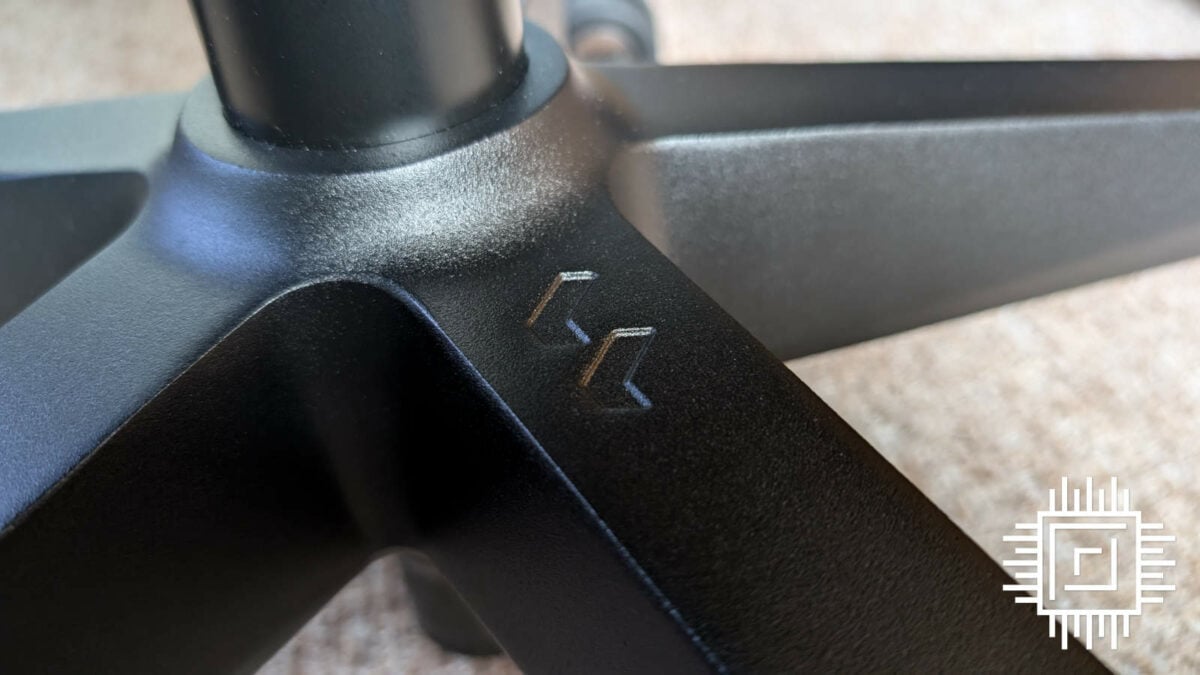Leaving its comfort zone of cases, Fractal Design is turning its talents to the world of gaming chairs via Refine. In doing so, it’s realised a throne that’s comfortable, supportive, and uniquely stylish.
I’ve placed my posterior on this pretty perch for the past several weeks, to the pleasure of my posture. It’s surprising just how well Fractal Design has circumnavigated the trappings that come with first generation products, handily competing with the likes of Secretlab, Razer, and other mainstay manufacturers.
It’s not without a few irksome quirks, but none spoil the splendour of Refine. In fact, this seat has a few features here that competitors would do well to learn from.
Specifications
| Fractal Design Refine specs | |
|---|---|
| Material options | Alcantara Fabric Mesh |
| Recommended max. weight | 125kg (276lb) |
| Recommended height range | 165 – 200cm (5ft 4in – 6ft 6in) |
| Seat height (from floor) | 475 – 595mm (Alcantara / Fabric) 490 – 610mm (Mesh) |
| Seat depth | 425 – 480mm (Alcantara / Fabric) 450 – 505mm (Mesh) |
| Maximum tilt | 125° |
| Warranty | Five years |
| Price | Fabric / Mesh: £474.98 ($549.99) Alcantara: £779.99 ($899.99) |
Assembly
I’ve built dozens of gaming and office chairs over the years and Refine is one of the easiest experiences I’ve had doing so. Intelligent and intuitive design choices make it simple to piece everything together. Case in point, I had it ready to go in about 45 minutes.
Like most chairs, assembly requires a sizeable space. Clearing an appropriately accommodating area is the hardest part of the construction process, though. With that expected ask out of the way, the rest of the process is a breeze.
Height and tilt mechanisms arrive preinstalled to the base of the seat. This is normally one of the fiddlier steps of building most gaming chairs, owing to its orientation. However, by removing this part of the process you can sit down all comfy, all the faster. Great stuff.
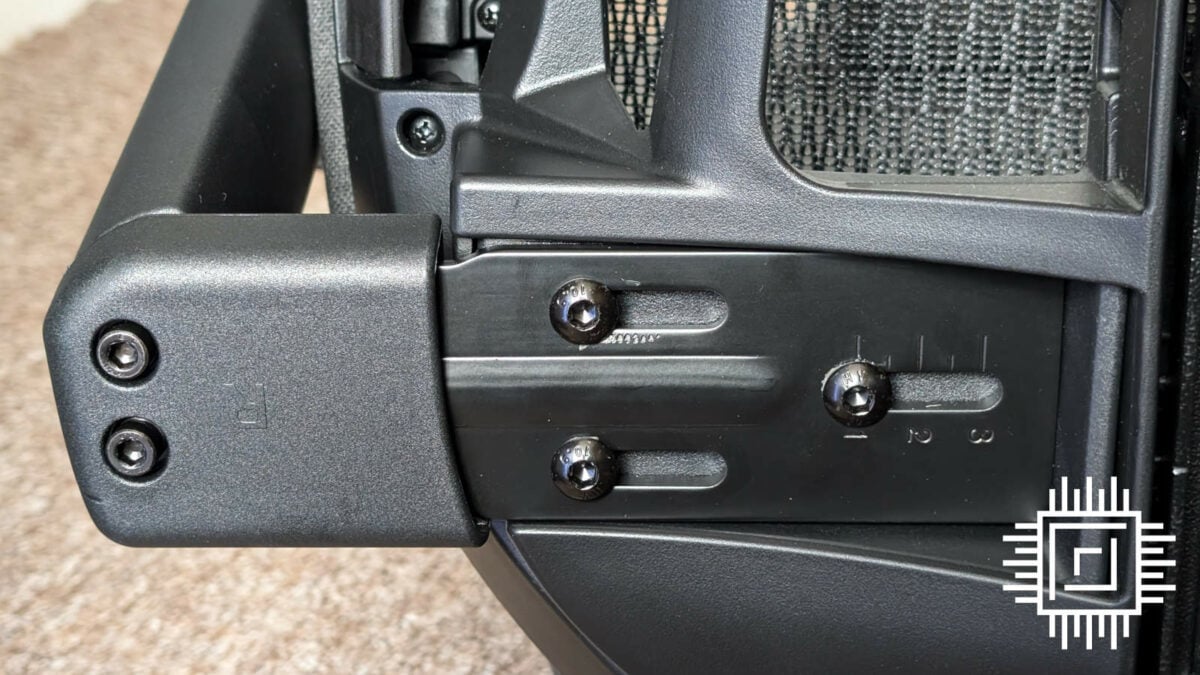
Armrests connect to the chair via its base, with three screws. In a novel touch, Fractal Design has opted for adjustable cutouts. This gives you greater freedom in how wide or narrow you fancy the armrests to be, accommodating more builds too. The narrowest configuration suits me fine, but more options are always welcome.
Refine’s backrest attaches via a single anchor point at its base, with four screws locking it in place. It really is as easy to install as slotting it into its slit and tightening its screws. While this is commonplace for most office chairs, the majority of gaming chairs opt for two brackets either side of the armrest which are fiddly to work with at the best of times. Suffice to say, I appreciate Fractal Design’s choice of approach.
The cherry on the cake for this practically perfect building experience is the headrest. No unsightly straps. No unreliable magnets. Instead, we have a good old-fashioned hook and locking mechanism. For the sake of the review, I’ll save my gushing thoughts about this for later when we discuss comfort.
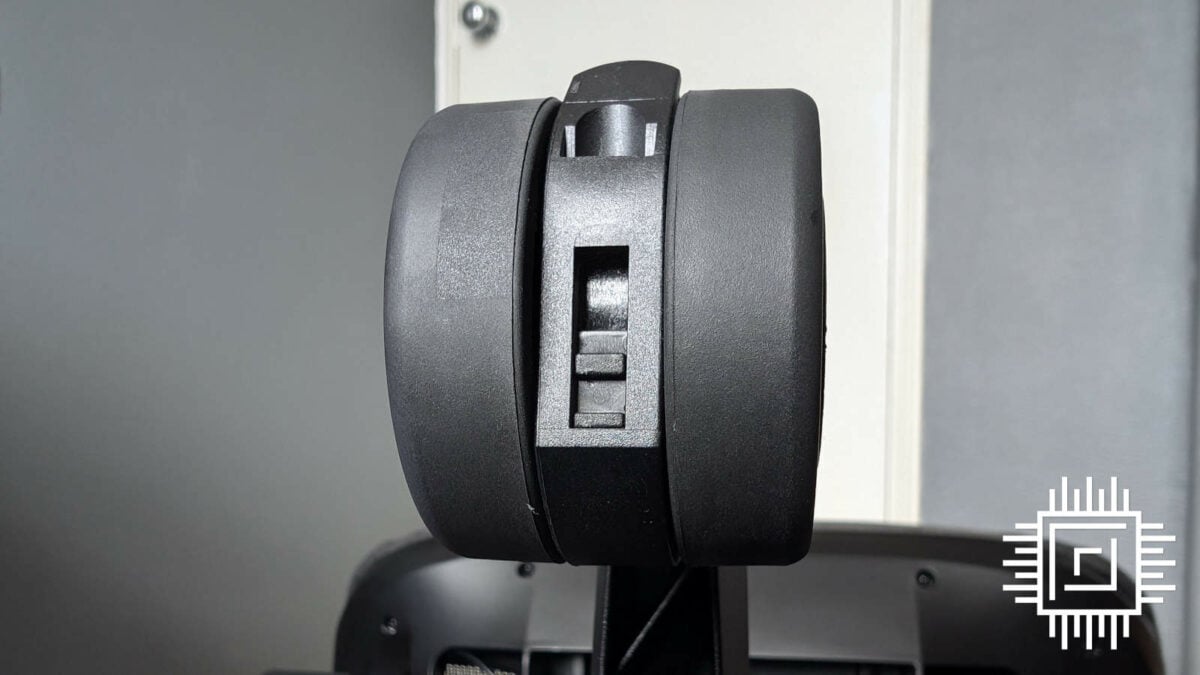
I do have one minor complaint about Fractal Design’s instructions. By default, the chair’s wheels’ Unloading Brake is active, stopping it from rolling if you’re not sitting in it. However, this information isn’t part of the assembly instructions, instead relegated to the back of the manual as part of ‘Additional Info.’
I’d prefer to deactivate this setting. Unfortunately, this now requires that I awkwardly flop the completely constructed chair on its back to adjust the switch mechanism on each wheel. This problem feels strange given the attention to detail on display elsewhere. It’s an easy fix, thankfully, as Fractal Design need only refine its manual for future units to avoid this.
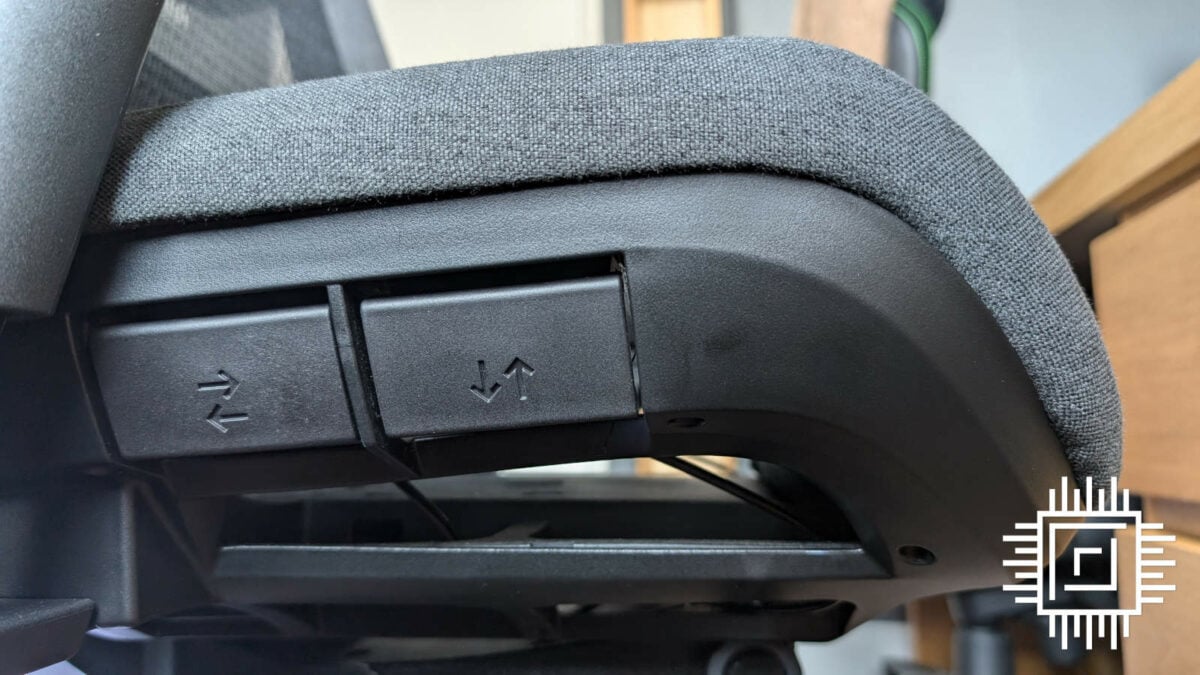
Design
Furthering its fabric era of sorts, kickstarted by the Mood case, Fractal Design offers Refine with a choice of two fabrics, standard and Alcantara, as well as a mesh model. It’s available in either white or black, but the posher Alcantara material is only available in the latter colourway. It’s a shame there’s no leatherette option, as that’s typically my preferred choice of upholstery.
Saying that, I’m quite taken with the black mesh and fabric combo I have here. While I’d love to see it in white, its darker tones suitably blend into my setup. With these materials, it looks explicitly more office chair-like than it does gaming. However, it’s not boring to look at by any stretch, with its tall backrest and use of fabric in place of typical plastic separating it from shorter, more standard stock.
Refine further separates itself from the pack by swapping levers for paddles. Controls for the height and depth of its seat, as well as the tilt of its backrest, are all attached to the seat base. I love how easy to reach they are, and their convenience invites comparisons to NeueChair’s ControlShift system. That’s fine company to be in.
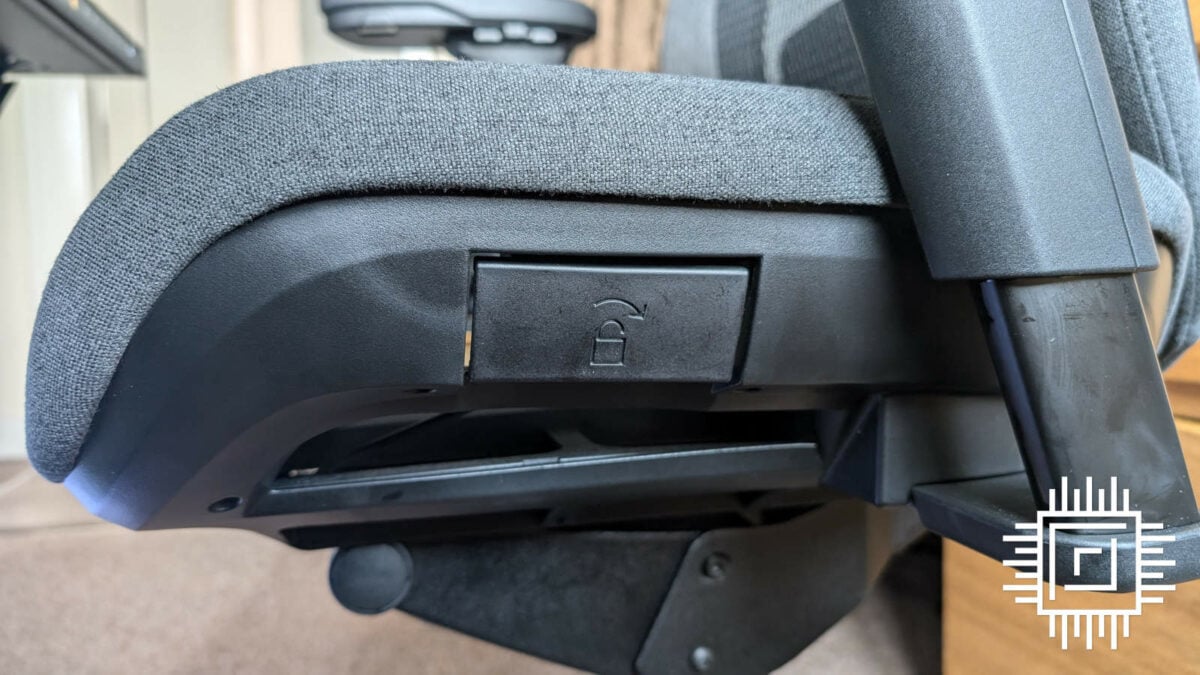
There is one rotary lever lurking underneath all that cushion that tightens or loosens the chair’s tilt tension. While it performs is function well enough and can even extend to be more easily reachable, I wish Fractal Design had implemented clear endpoints for it. Without one, I’m never sure when I’ve reached minimum or maximum resistance, leading to fiddly adjustments.
No premium gaming chair would be complete without 4D armrests and Refine doesn’t miss this beat. Two buttons on the inner side of each arm, as well as a paddle on the outside, make tweaking height, width, and swivel simple. Contrastingly, depth adjustment is more free flowing without any firm lock. While this stops the chair from stubbornly bashing against your desk, it can lead to annoying adjustments following absent-minded bumps as the arms slide back with little resistance.
Much of the seat’s largely stellar design feeds into its comfort, which I’ll touch on shortly. Before we move on, though, I must highlight my one major negative and that’s its wheels. Unloading Brake engaged or disengaged; they simply do not play nice with my carpet floor. While my Razer Iskur V2 glides across the surface with ease, these hubless casters put up far too much resistance. This should be less of a problem on smoother surfaces but it’s a weak point for the chair on rougher terrain.
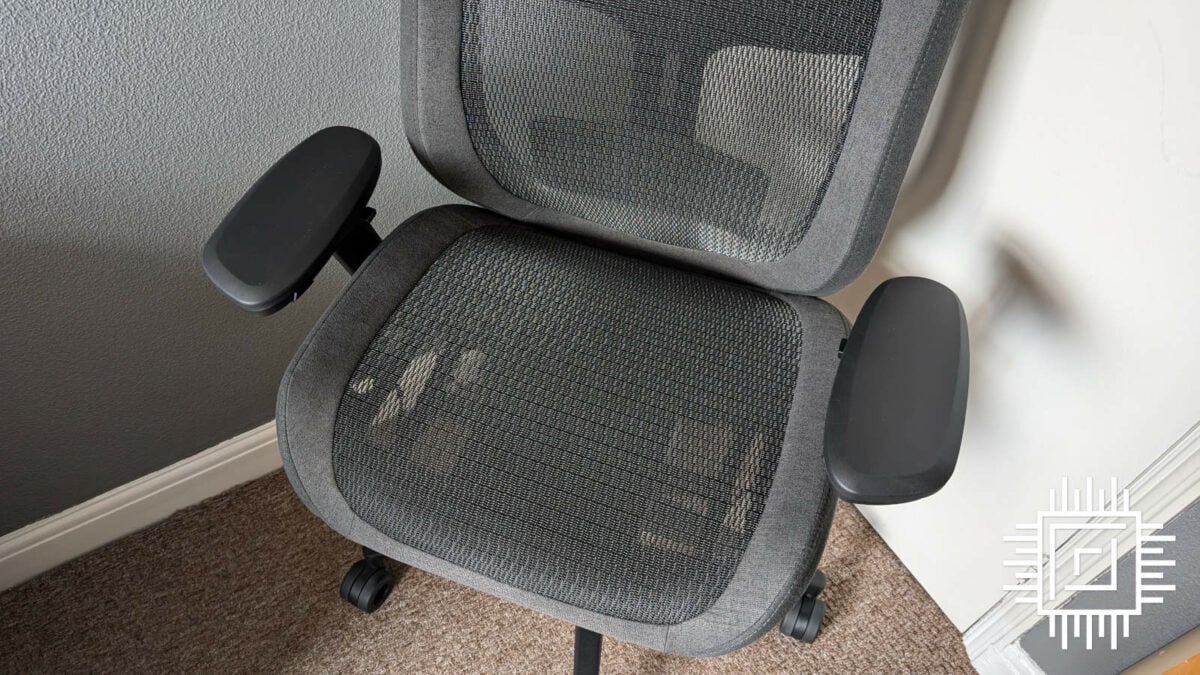
I’m 5’11 and weigh around 100kg, which puts me within the recommended height and weight ranges for Refine. For those of a similar height and build, I can attest that the chair makes for a comfortable seat for hours on end. Work or play, it’s got your back.
Before sitting on the chair, I worried about the comfort and support its mesh material would offer me. Thankfully, these anxieties were quickly put to rest soon after butt touched base and back met rest. The seat is plenty wide for those blessed with bountiful biological cushioning like me, and its wings help cup you in securely.
Shifting from leatherette and cushioned fabric to mesh in a warm environment quickly illustrates how much more breathable the latter of the three is. My home office can quickly become something of a sauna but Refine helps keep my body cool when temperatures begin to rise due to the sun or my PC.
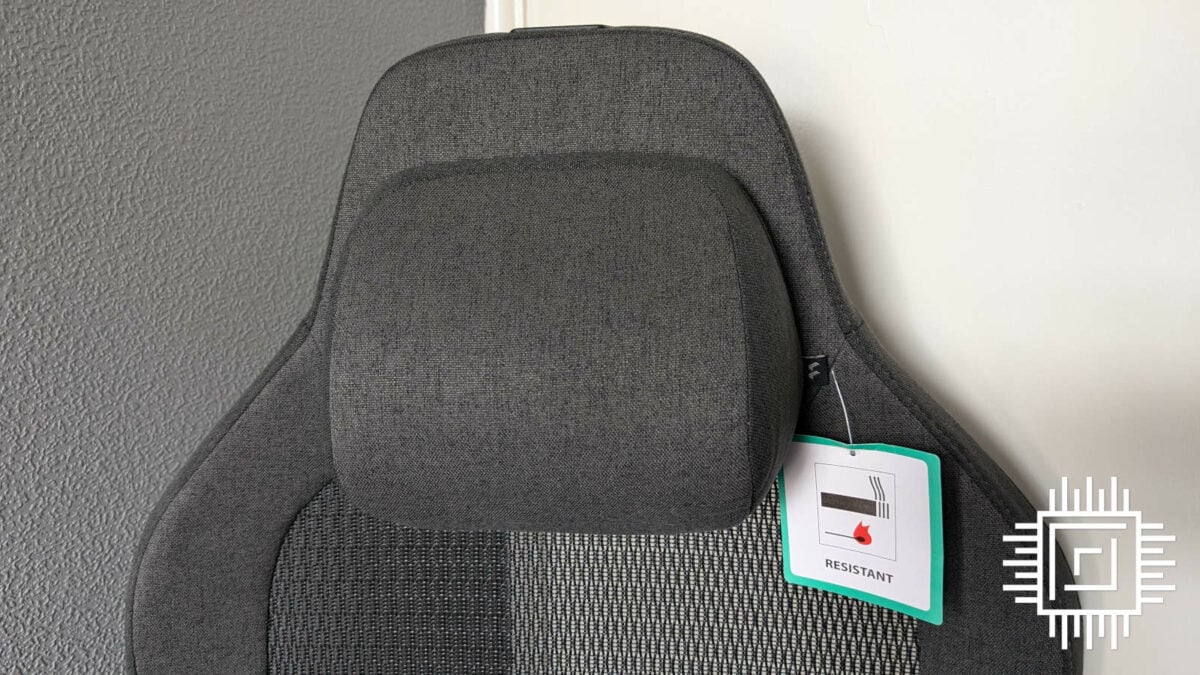
The chair’s pièce de resistance though has to be its head cushion. This is, without a doubt, the best cushioning and adjustment mechanism I’ve ever experienced on a gaming chair. It’s the perfect size and shape for my head, fitting perfectly into the curve at the back of my neck without pushing me away from the backrest.
In addition to its comfortable qualities, it’s also rock solid in its positioning. Try as you might, you won’t knock from whatever position you’ve set it to without suitable force. All you need is a firm grip, and the cushion then lifts, up or down. Should you want to remove it altogether, just press the convenient eject button at the top of the backrest.
I’ve lost count of the number of times I’ve tossed lesser head cushions aside from seasoned manufacturers, only for Fractal Design to show everyone up first try. Bravo. Just put the fire-resistant tag in a less prominent place with any successors, please!
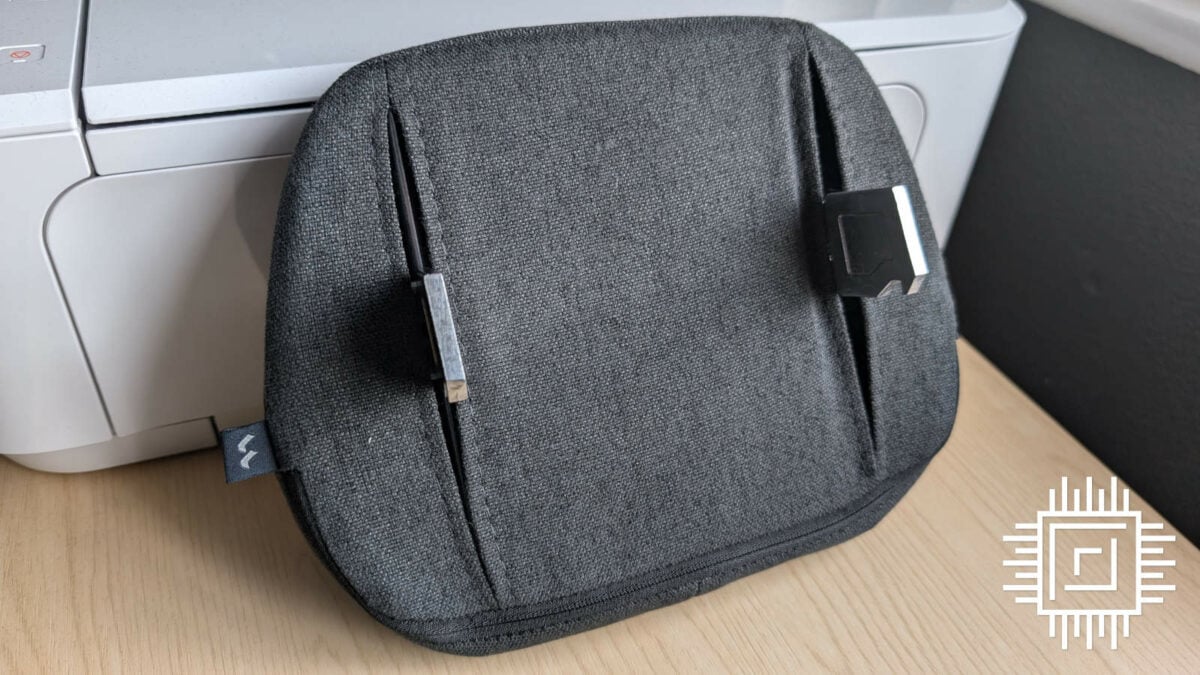
Finally, let’s touch on Refine’s lumbar support. It features a height adjustability range of 110mm and depth of 20mm, which is plenty for my near-30-year-old aching back and should be for most other folks too. You can adjust it to your liking via a knob at the centre back of the chair.
Whether sitting straight or kicking back in the chair, lumbar provides welcome additional support. I greatly appreciate that there are clear endpoints for this feature, as well as telegraphed stages in both feel and auditory click. This helps me find my setting much easier after my partner has sat in the chair and made their own adjustments.
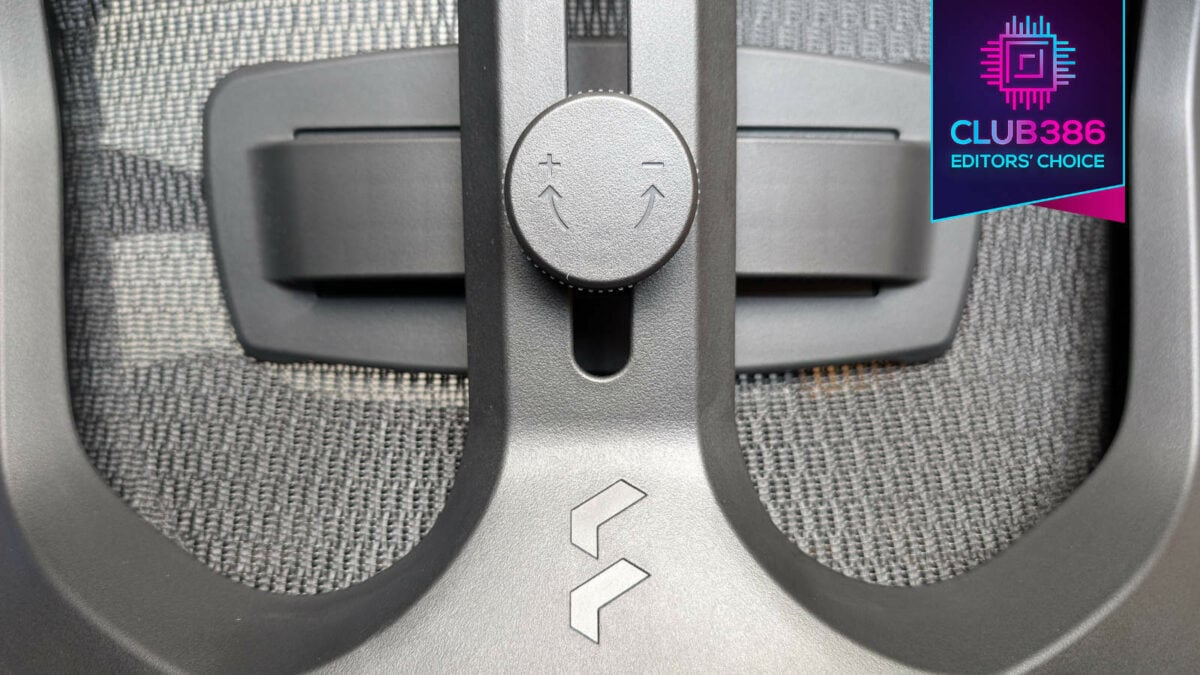
Conclusion
I’m in no hurry to return to any other gaming chair in my house, which is probably the biggest compliment I could pay Refine.
With this in mind, its £475 ($550) feels more reasonable given it’s keeping pace with similarly priced competitors. Of course, that doesn’t stop it from being an expensive purchase, but I’ve always been one to argue that you can’t put a price on supporting your bum and back for hours at a time.
Given the strength of this debut, I’m keen to see what else Fractal Design can offer in future iterations of this chair or alternative models. If nothing else, the company has at least shown others the light when it comes to headrest cushions.
Fractal Design Refine
Verdict: A gaming chair that boasts comfort and style in equally excellent measure.
Pros
Brilliant headrest
4D armrests
Adjustable lumbar
Pleasant aesthetic
Easy assembly
Five-year warranty
Cons
Awkward wheels
Armrest depth can’t be locked
No leatherette option
Buy

